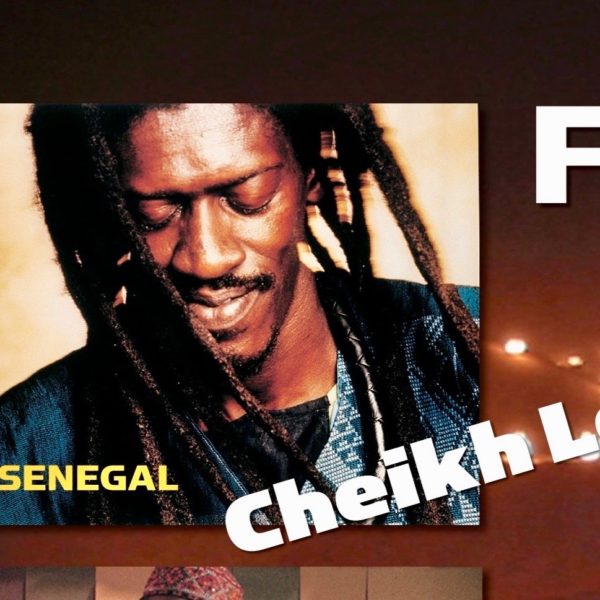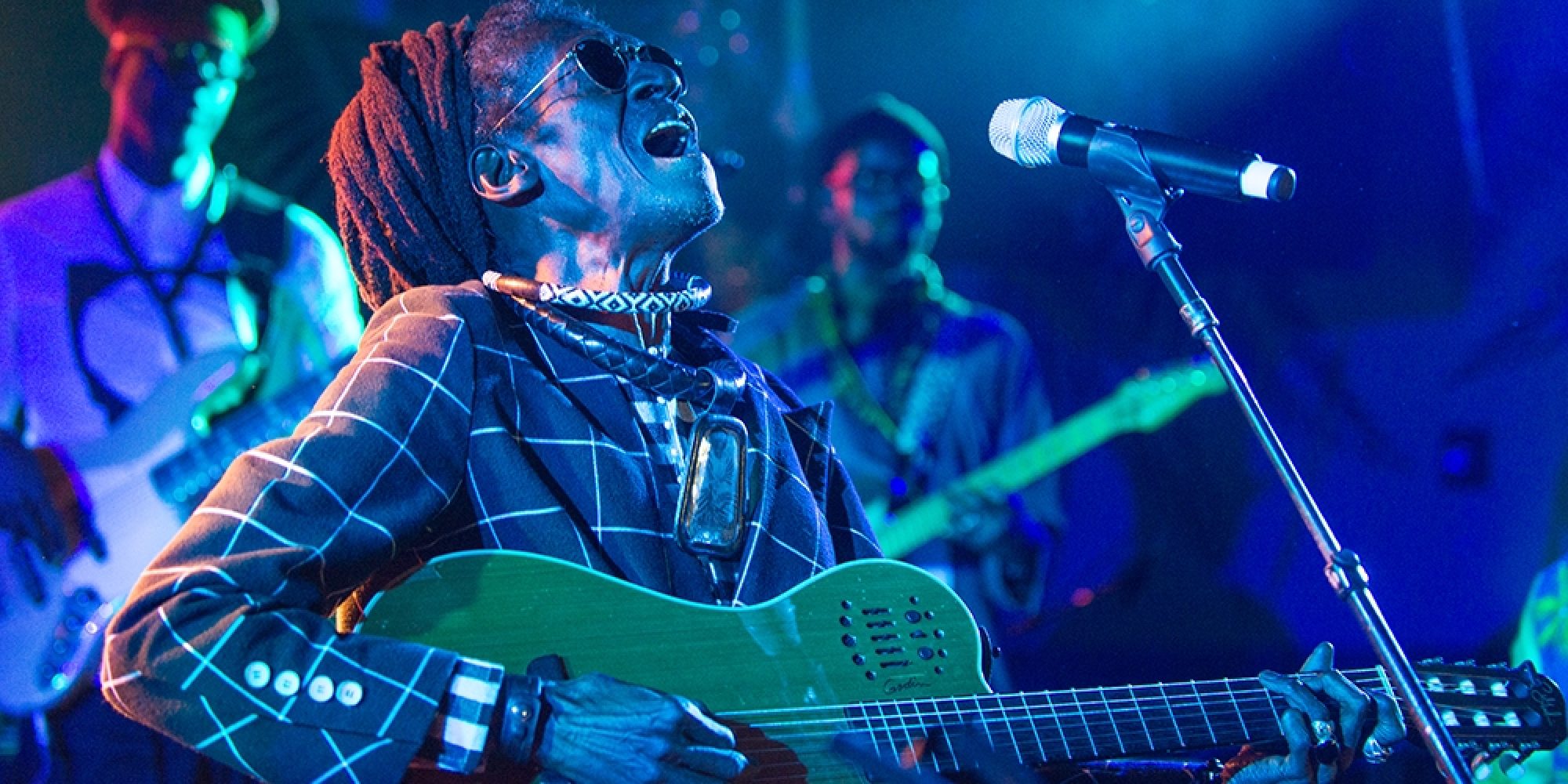t’s been some 10 years since Senegalese maestro extraordinaire Cheikh Lô has released an album of new songs. And for this one, he’s pulled out all the stops. Maame (pronounced “mahm”) is a celebration of Lô’s 50-year anniversary in music. You can hear Banning Eyre’s audio review of the album here. Meanwhile, Banning reached Lô by Zoom in Dakar as he was rolling out the new album in a series of concerts there. Here’s their conversation, lightly edited for clarity. Thanks to Pavel Smid for coordinating this interview.
Also, check out Banning’s audio review of Maame.
Cheikh Lô: Hey, Banning. Hello. Let me put on my hat. [Dons his trademark white safari hat.]
Banning Eyre: Why not? Dressed for the occasion! Such a pleasure to connect. I have to tell you that I really like the new album. I've listened to it several times and like it better each time. It's been a long time since you created a new album. So to start, tell me how this one came about.
Well, usually it was Nick Gold who produced me. He produced four albums. The fifth album I did it in France, in 2015, because Nick had stopped producing. But then, he sold the license to BMG. So, during all this time, we were waiting to see how to make another album, because time flies. So it was during the time of Covid, I had my studio, and in the evening, from around 7 or 8 p.m, we stayed at home. No one went out.
Yes. It was tough.
Yes, it was hard, but for me, Covid suited me, because my son was the sound engineer for us. He's the one who did all the takes, and currently, he plays piano with the band too. His name is Massamba Lô, so he's a producer on the record along with BMG and World Circuit.
So, we had the opportunity at home until three o'clock to work. Whatever time we had, when the feeling was there, we’d go up to the studio. I’d take the guitar and start, piece by piece. Then I started to call on musicians, the other instrumentalists, the horns and the bass, the percussion, the piano. After doing all the demos, I called Nick Gold and told him, “Since you are not currently producing, don't you have contact with other producers there to see what we can do together?” So he told me, I'll see with BMG. Then they listened to the demo, and right away, they were interested. We signed the contract in 2022. I thought that maybe it would come out in 2023, but that wasn't the case, we were still working on the mix.
So then they told me they would release it in 2024. But I have noticed that the English, do things slowly but surely. All the albums I've made with them, nothing has been rushed. They take care to do things properly. And so, almost at the end of 2024, they said, “Listen, Cheikh, we believe we are going to do it in 2025, next year. Because we would like to make vinyl.” That would take time because it is not only us. All the houses that make vinyl have a lot of orders.
It's a problem everywhere. Vinyl is in demand.
So then we were doing the mastering, and after the mastering, we were thinking about the official release. They told me September and I said, “If you release it in September, why not on my birthday, September 12?” So that’s the moment the first single was given to the world.
They told me the full release date is September 26. I said okay, because I've always been patient. But on my birthday, they did releas a single, “Baba Moussa BP 120.” After that, they released another single “Koura,” which is more traditional. There are balafons and flutes and so on. So on September 26, the album is out, and it's available for whoever wants it.
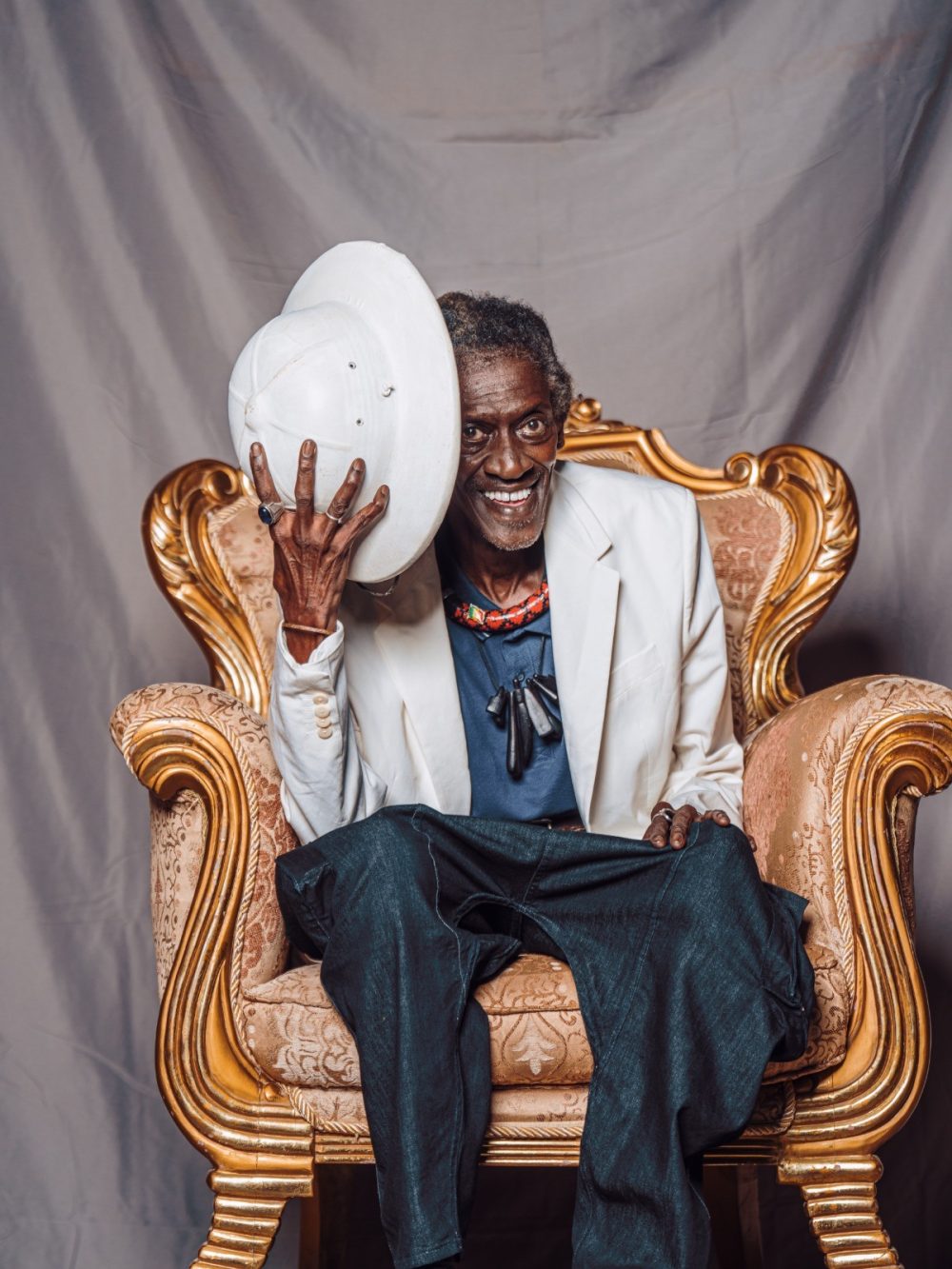
Wonderful. Let's talk a little about some of the songs. I hear all the Cheikh Lô trademarks here. There's this magic of the fusion of Latin music and mbalax, with the traditions of West Africa, including Burkina Faso, where you grew up. It's all there. And the singing! Just so wonderful on every song. I was really touched by that. But because I don't understand the lyrics I’d love to hear what some of them are about. Start with “Baba Moussa BP 120.”
Baba Moussa was a kind of father of mine. He was the same age as my father and he was a lieutenant in the police. At that time I was young and I saw him with his police car and everything. He was famous. Everyone knew Baba Moussa. At that time, there were many many criminals, many thieves, even guys who managed to kill people.
This is in Bobo Dioulasso.
In Bobo Dioulasso, yes. You saw a lot them in the evenings, but thanks to Baba Moussa, they all disappeared. He did an excellent job and the whole population was proud and happy with him. So we had to make a song about Baba Moussa that my band Volta Jazz did with the singer Tidiane Coulibaly. He created this song and he says, “I wanted to go to Abidjan. So I'm there in front of the station, waiting for the train to arrive, but while I'm looking over there, my suitcase that was next me… A thief came. He took it. That means the trip was canceled.” Afterwards, he goes to the police station to see Baba Mousa and explain the situation. And two days later, Baba Mousa gets the suitcase back. It was incredible. So Tidiane Coulibaly says he deserves a song. And BP 120? That’s my father’s post office box in Bobo.
Okay. I wondered about that. Good story.
So that was 1976 when this song was written. I was in the band as a drummer and I also sang. So, I said to myself, I have to bring Baba Moussa back again, because I looked in the rearview mirror.
I love the way this song is Congolese rumba in the beginning, but Cuban salsa at the end. It’s like a trip from Kinshasa to Havana. By the way, is Baba Moussa still alive?
No, he's been dead for a long time, over 20 years ago.
Let me ask the title song, “Maame.” It's a slower piece, very sensual.
Yes. “Maame” calls my grandfather, the ancestors. Maame is my spiritual guide. Okay? We all call him Maame here. But his name is Maame Masamba Ndiaye. But everyone calls him Maame. He was a wise man. I think he's the only one I knew in Africa who lived 150 years.
Wow! I've never known of anyone who lived that long.
That's my life goal. I stayed with him for almost 30 years until he died in 2014. So we had to make a dedication, a song for my life goal. And the song also proclaims his qualities. Because for me, he was 100% positive. So we had to share that with others.
I see that the Czech guitarist Pavel Smid plays on that song. You made a great connection with Pavel and some of his musicians, and did some live shows and recordings with them in Europe in recent years. Some great stuff! Talk a little about this collaboration.
So there was a festival in 2019 in the Czech Republic, Festival Ostrava. It’s a big festival that attracts almost 50,000 people. So, Pavel and his producer, his friend Martin, were there. They saw me perform there, and when we finished, there was a small demo that we made with a sound engineer who had a small bus. In the bus, Pavel and Martin came there. He introduced himself, saying he's a guitarist and everything, he composes. Okay, fine. Then we got into their car, they just played me a song “Djarabi.”
Oh yes. I’ve heard his version, with you on it. Very good.
I listened to it. He sent me the track, I sang and sent it back to him. Then the following year at the same festival, Pavel's group was programmed there. So I came again and we played together. And since then, it took off. After that we did Turkey, we did Istanbul, Ankara, we did Geneva together.
So for my 50th anniversary, I'm happy to be with him. He's proud because he likes what I do. He’s been here for almost two weeks. We live together here at home. We played in a square here in Dakar for the 50th anniversary, so it was a gala evening. There were the authorities, the press, ambassadors. And now, tomorrow, we go to M’bour, 70 km from Dakar, to a hotel called the Flamboyant. So it's still part of the 50th anniversary. When the record comes out, we'll do European tours, North American, anything… It will be part of the 50th anniversary of Cheikh Lô. I don't think there are many musicians who have had a 50-year career.
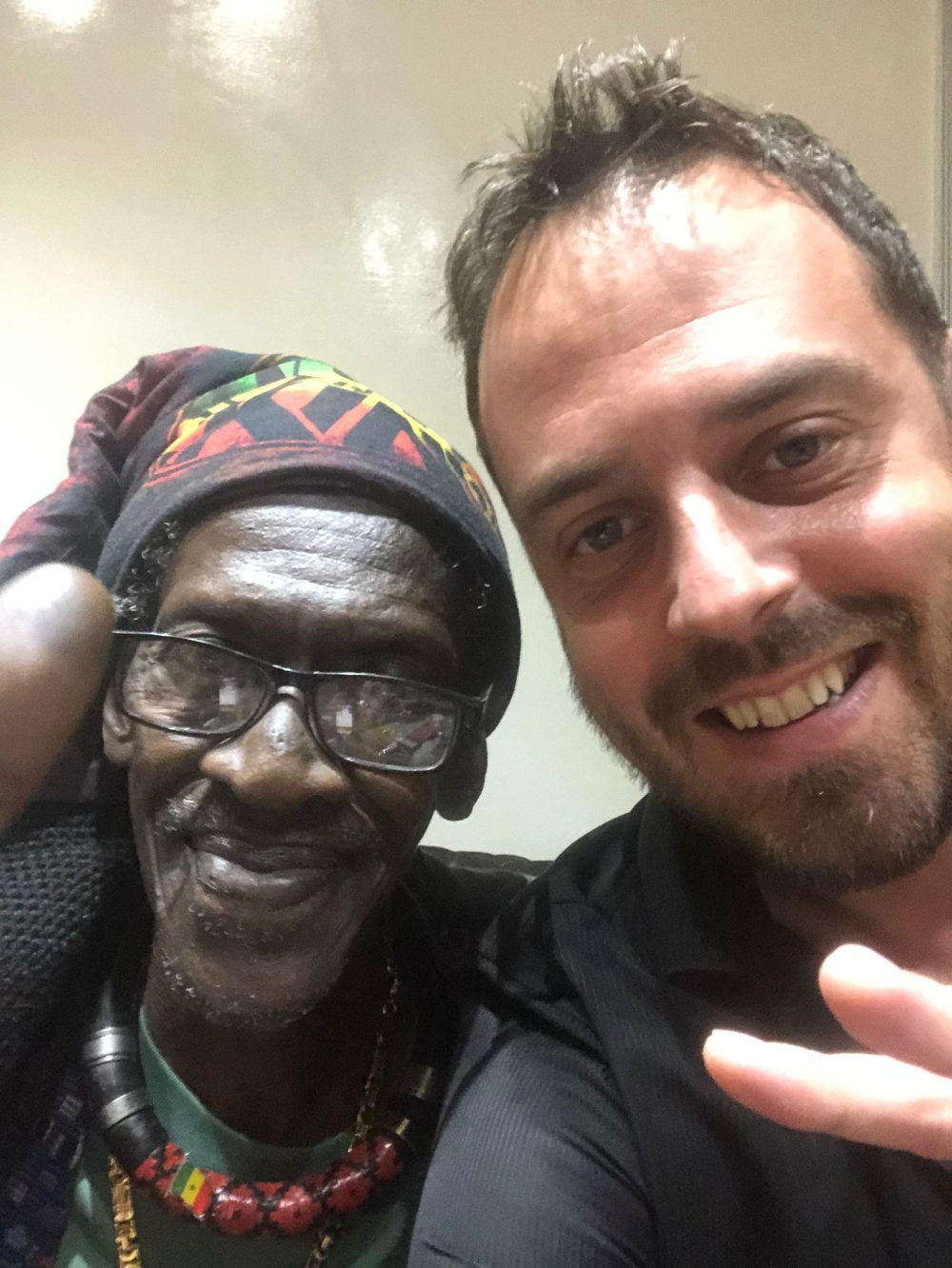
That is true. You have a great reggae song on the album, “African Development.” It’s very chill. It reminds me of a reggae from Salif Keita, “Dakan Fe,” one of my favorites. The spirit is amazing, but talk about the message in your song.
Africa must change its face. It is time for us to be sovereign after almost 400 years of slavery and colonization. All that is over now because we are in the 21st century. The world has become a big village today with the internet, which has changed how we communicate.
Twenty years ago, it wasn't possible, but the world is evolving now. Africa must develop. We no longer want someone who is in charge elsewhere to come as if he were our father to tell us, “This is how you do it.” We know what we have to do. They must give us our freedom, our vision so we can have mutual respect. We will collaborate with all the rest of the world, but there can be no more trapping. Because we must preserve our natural resources. Africa is richer than everyone else. And yet, we are poorer than everyone else. Why? Because we have had incapable leaders, leaders who had an inferiority complex. It's serious. They dragged us through the mud for decades and decades. Now we say stop. We have to develop democracy in the right way and have mangecracy.
Mangecracy?
Yes, eat-cracy!
(laughs) That’s great. So there are a lot of changes in West Africa these days. I have a lot of connections with Mali, in particular. It's a new era. What do you think of the changes?
I think it’s a good thing. It was about time. Maybe God wanted it, but now, we feel that Africa is getting ready to move towards development. That's why I created this song,
Well, I hope it's going to be better now. We shall see.
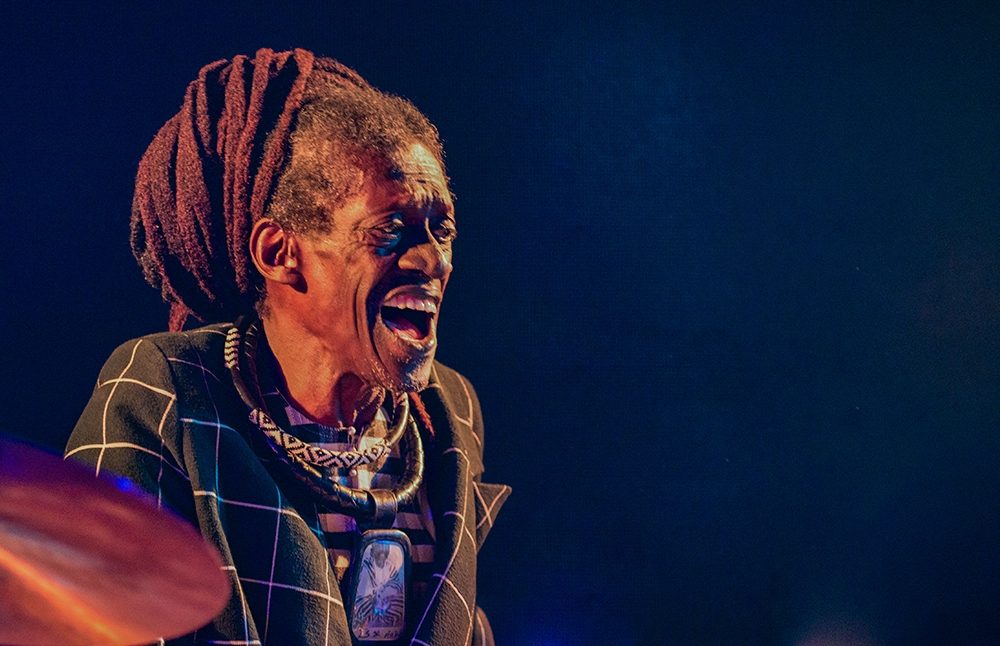
Anyway, I love the song. I don’t think we’ve heard Cheikh Lô reggae before. You still have the influence of rumba, salsa, son, Cubano music, but you mix it in a very unique way. The moment you listen, you know: That’s Cheikh Lô! It's not an imitation of anything. And your singing is magnificent, very soft and silken, but also strong. Who were your models, the singers you admired most?
At a young age, I was lucky. My older brother had vinyl. At that time, it was a treasure. At home, he had a record player with 33 and 45 rpm. So I had the opportunity to listen. Oh no, my big brother, he did me a lot of favors, this magnificent big brother! And I discovered all the music of West Africa. In passing, I already started to sing stuff by [Tabu Ley] Rochereau, Bembeya Jazz, all that. That's what influenced me a lot; that was my school. Because I never went to university to learn music. I never had a teacher. I made it on my own with the guitar, knowing my chords, major, minor, all that. I worked a lot. I dragged my work around. I made it on my own, even on the drums. No one taught me anything. I played the congas, I played the timbales... All the drums on this record, I play them too.
I remember the last time we were together was in New York for GlobalFEST in 2019, and you played the drums in that show.
Yes.
Well, Cheikh, it’s great to speak with you. I should let you know that we’re researching a possible trip to Senegal with listeners in 2027. We have done great music tours in the past with listeners to our radio program. You know, we are 38 years on the radio here, and over those years we’ve taken listeners to the places we cover, including Senegal back in the late ’90s. Anyway, as we plan for 2027, we will be in touch. We would love for you to be part of it!
Inshâ'Allah! After the release of this beautiful album, we would like to travel the United States, Europe, and Asia. I've already been around the world. I've been to Africa, Europe, the United States, Asia, Oceania, Australia, and New Zealand. So I've been to all five continents of the world.
Time to do it again, right?
Time to do it again.
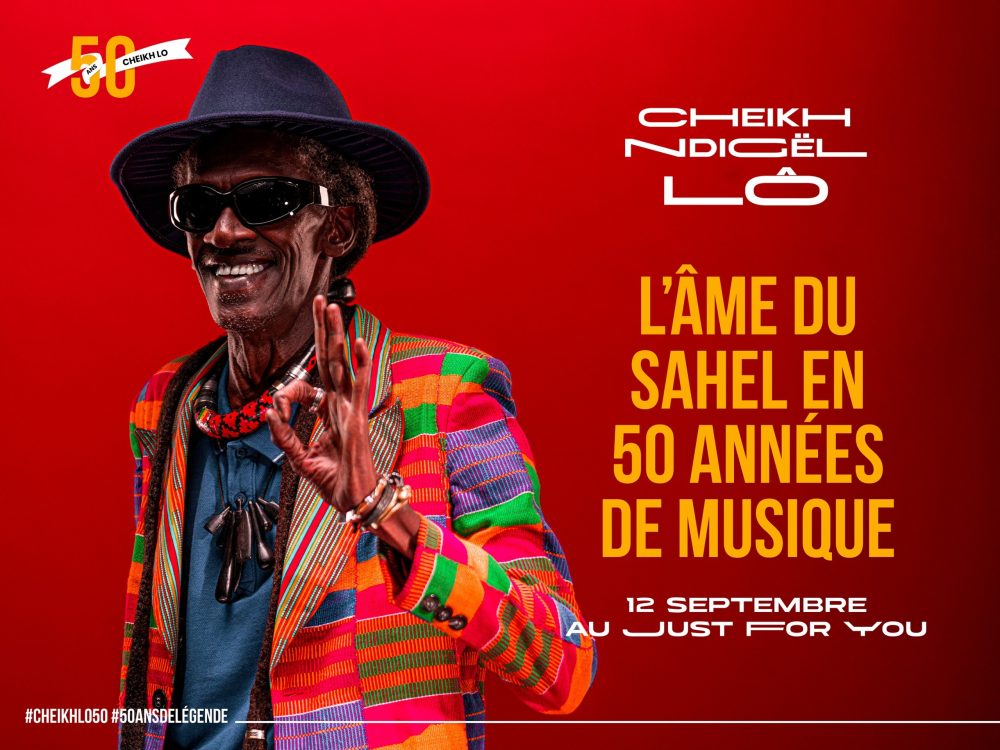
AWell, to close, do you have a message for the listeners, the Afropop audience?
Yes, Afropop, I wish you longevity. Currently, you have 38 years of existence. And I wish you half a century, 50 years. If noone dies before 50, I hope the whole team will be here, and we will celebrate together. 50 years minus 38, that makes 12 years. So if you do your 50 years, I will have 62 years in music. So we will celebrate together. That's my wish that I pray for.
Excellent. You know things are a little tough for the arts here these days. Our government has cut a lot of support for the arts. So now we’re reaching out to the public to keep our work going. It helps a lot to have the words of support from someone like you. We appreciate that.
I believe that the President of the United States is the one who made this decision to block many things. But he has to educate himself. He has to understand that culture is the bulwark of any country. It is culture that moves things forward. Culture has a history and history remains. He must be able to understand that. We are not presidents, but we know this. Cheikh Anta Diop said that culture is the bulwark of Africa. So Donald Trump must understand that culture can save the United States. He must not leave that aside. He made a big mistake. So we must pass this message on to Donald Trump that Cheikh Lô said that you should think again about what you are doing in relation to culture. He can leave many things aside, but not culture. This is my message to him.
Thanks so much, Cheikh. I don't know if you know this, but I'm a guitarist also. And it just so happens that I am also releasing an album on September 26. It’s an acoustic guitar album called Bare Songs Vol. 1, coming out on One World Records. I’ll send it to you. Meanwhile, best of luck rolling out Maame. It’s a landmark album.
Thank you.
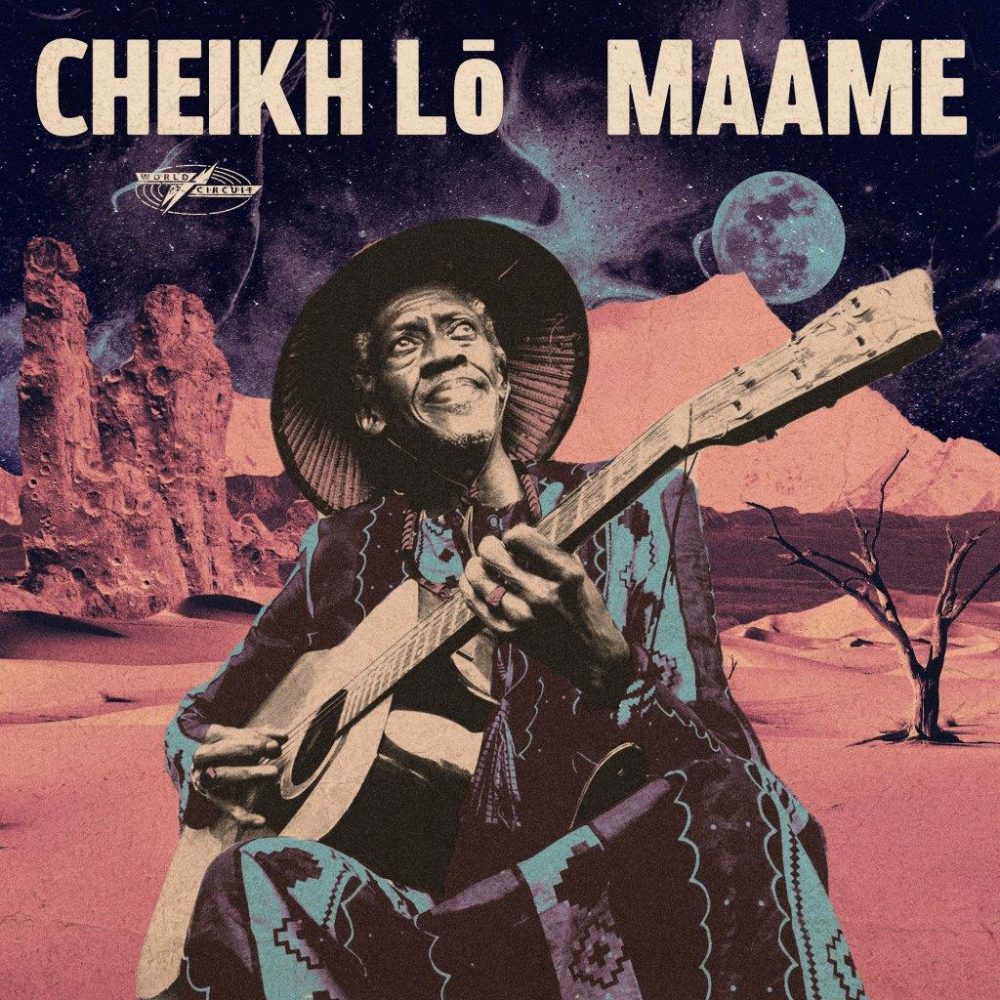
Related Audio Programs
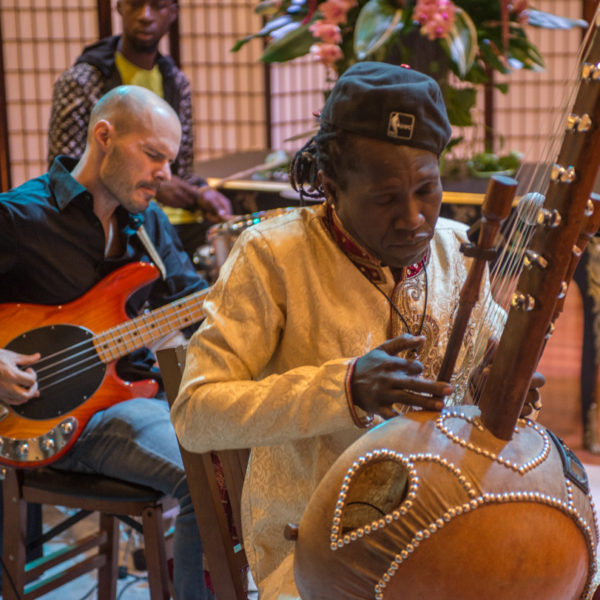
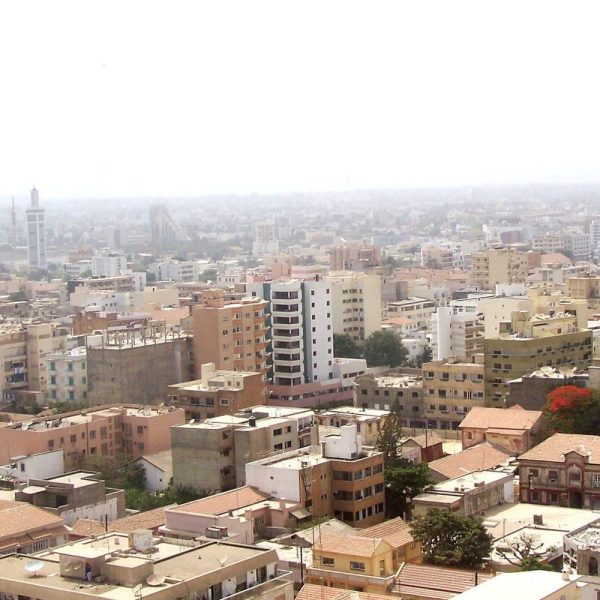
Related Articles

